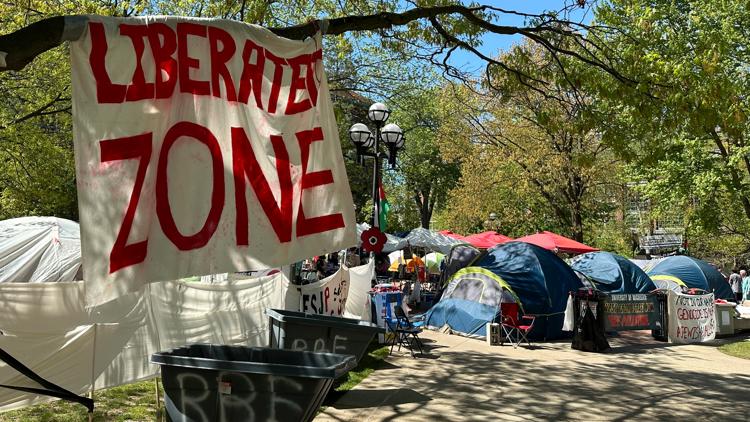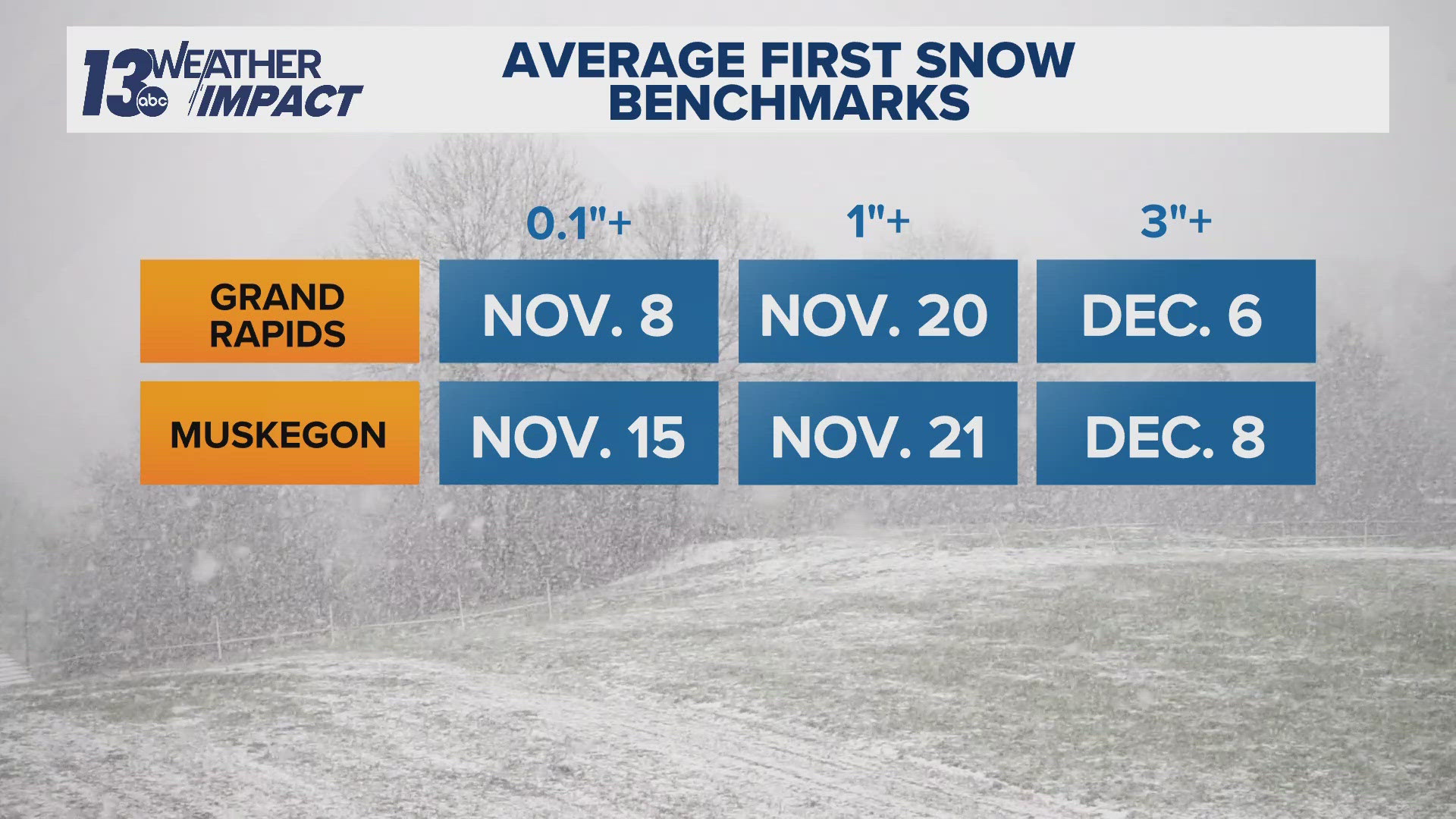LANSING, Mich — After an investigation into several protest incidents at the University of Michigan earlier this year, Michigan Attorney General Dana Nessel announced charges.
The AG's office said most charges were related to trespassing and pushing back against police during dispersal orders.
“The right to free speech and assembly is fundamental, and my office fully supports every citizen’s right to free speech under the First Amendment,” Nessel said. “However, violent and criminal behavior, or acts that trample on another’s rights, cannot be tolerated. I hope today’s charges are a reminder to everyone who chooses to assemble, regardless of the cause, that the First Amendment does not provide a cover for illegal activity.”
In response to the armed conflict between Israel and Hamas, pro-Palestine demonstrators set up an encampment in April at the Diag, which is a large park space in the center of UM's campus in Ann Arbor.
The protestors demanded the university divest from companies linked to Israel.
Over the course of a month, an estimated 60 tents and perimeter fencing popped up on the Diag.
The UM Fire Marshal had concerns about fire and safety hazards that included a generator, multiple overloaded electrical devices and a vandalized fire hydrant that was rendered unusable in front of the Shapiro Library.
Officials with the University of Michigan met with student liaisons multiple times in April and May to talk about policy violations, safety concerns and the University's intention to remove the encampment.
After a meeting with liaisons and the Fire Marshal about these concerns, the AG's office said those encamped refused to make changes, so the University moved to clear the Diag.
Just after 5:30 a.m. on May 21, police read out a dispersal order, ordering all on the Diag to leave within 10 minutes.
Law enforcement then cleared out the encampment while being blocked by demonstrators at times. The AG's office said some demonstrators placed and threw chairs, tables and other items to block their path.
During this time, several demonstrators defied orders to vacate and physically obstructed police and pushed against their bodies, the AG said.
Two demonstrators have been charged with trespassing, a maximum 30-day misdemeanor, for failing to vacate the encampment.
Seven more have been charged with trespassing and an additional count of resisting or obstructing a police officer, a maximum 2-year felony. The AG's office said many in the camp initially refused to leave, but these charges are against those demonstrators who are accused of pushing back the police by making direct contact with their bodies.
"There were dozens of demonstrators in this encampment that morning who promptly obeyed the officers on the scene and dispersed,” Nessel said. “For those who did not, trespassing is a 30-day misdemeanor. In this case we charged only those who made an effort to impede the officers clearing the encampment. Resisting or Obstructing is a much more serious offense, and for the seven demonstrators we have charged with that felony, we allege that every one of them physically placed their hands or bodies against police who were conducting their duty to clear the hazardous encampment, or physically obstructed an arrest."
The AG's office filed the charges in 15th District Court in Washtenaw County Wednesday.
“The police must be allowed to do their jobs, to secure public safety without unnecessary risks of harm or violence, and these laws are in place to prevent such risks. All students should know, whether on- or off-campus, in a sanctioned demonstration or an unpermitted encampment, disobeying the lawful commands of law enforcement is a crime, and especially so when you use physical force to counter a police action.”
Two more people are facing charges for a separate counterprotest on the Diag on April 25. One is an alumnus and the other has no known affiliation with the university.
The UM grad is accused of disturbing the peace for allegedly kicking over flags belonging to demonstrators and attempted ethnic intimidation.
Another man is accused of taking multiple protestor flags, breaking two and then throwing them in a nearby garbage can while walking through the Diag.
“A college campus should be a place where the exploration and sharing of ideas and opinions is able to flourish, but conviction in your ideals is not an excuse for violations of the law,” Nessel said. “A campus should not be lawless; what is a crime anywhere else in the city remains a crime on university property. Our laws everywhere are designed to make safe communities and encourage respectful coexistence, no matter our personal disagreements or conflicting beliefs. Just as we strive for safe communities and neighborhoods, we owe it to students and parents alike to protect and encourage a safe campus environment."
As part of its investigation, the AG's office said it reviewed evidence tied to over 35 participants, including:
- Body-worn camera footage from more than 30 on-scene officers
- Police reports
- University of Michigan Division of Public Safety and Security (DPSS) reports and dispatch calls
- Official statement from the University President on ending the encampment
- Communications between University officials and the local Fire Marshal
- The Fire Marshal’s May ‘Encampment Fire & Life Safety Recommendations’
- A DPSS dispersal order
- UM regents’ bylaws and ordinances
- The UM Standard Practice Guide
- University policies on use of subject spaces including the Diag
- UM’s published Principles on Diversity of Thought and Freedom of Expression
- UM’s published Statement of Student Rights and Responsibilities
- Cell phone videos and photos
- Social media posts
- Surveillance footage, among other materials tied to the protests at Regents’ homes, Honors’ Convocation, graduation, art museum, and the encampment on the Diag
Because the protest activity during this period included multiple jurisdictions, the Attorney General's Office offered to review any pending cases related to protest activity on and off campus.
Multiple cases out of Washtenaw County were transferred to the AG's office for review, with the blessing of the University President and the county prosecutor.
The AG's office reviewed the investigation into a protest during the Honors Convocation on March 25th inside Hill Auditorium and declined to prosecute.
The investigation into incidents at the homes of UM Regents continues, the AG said.



